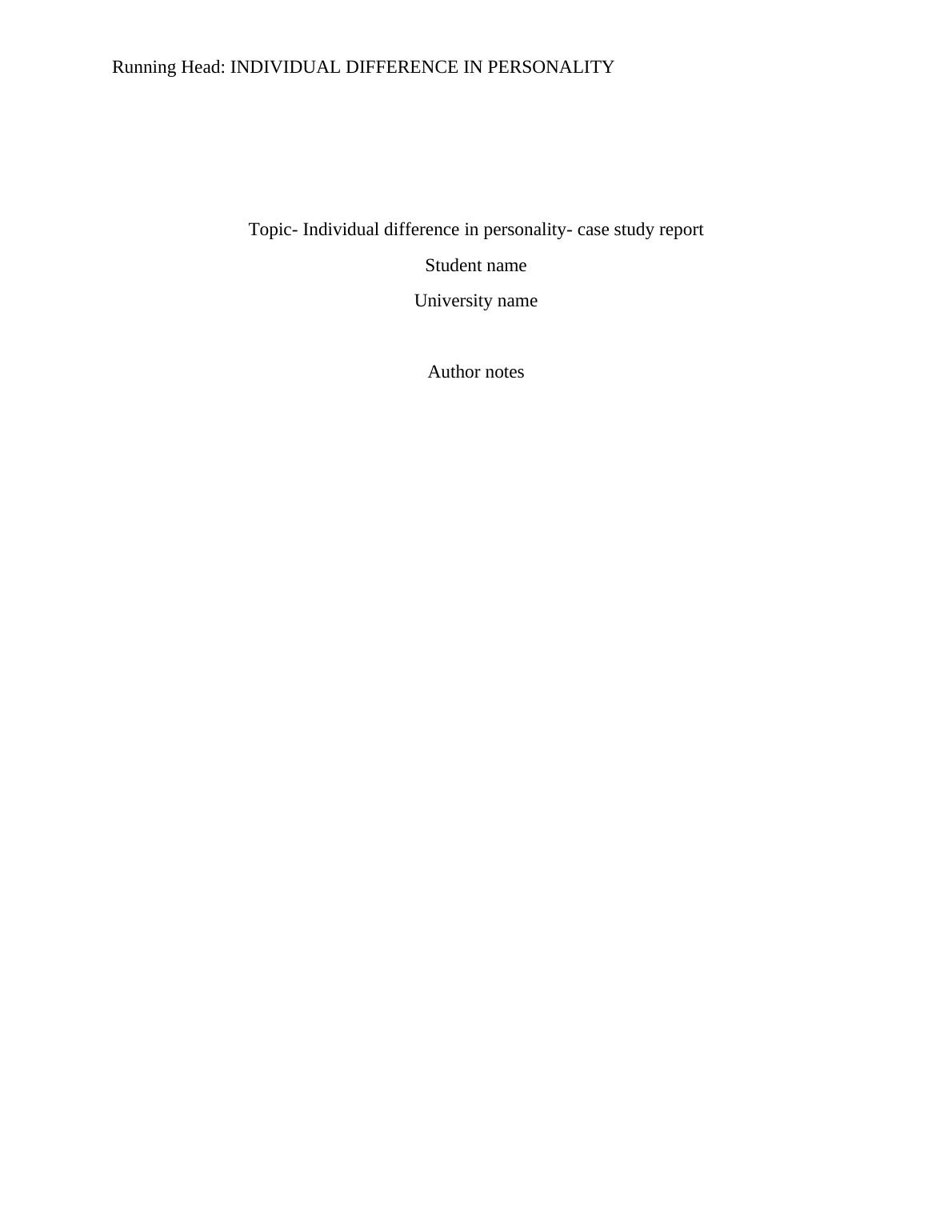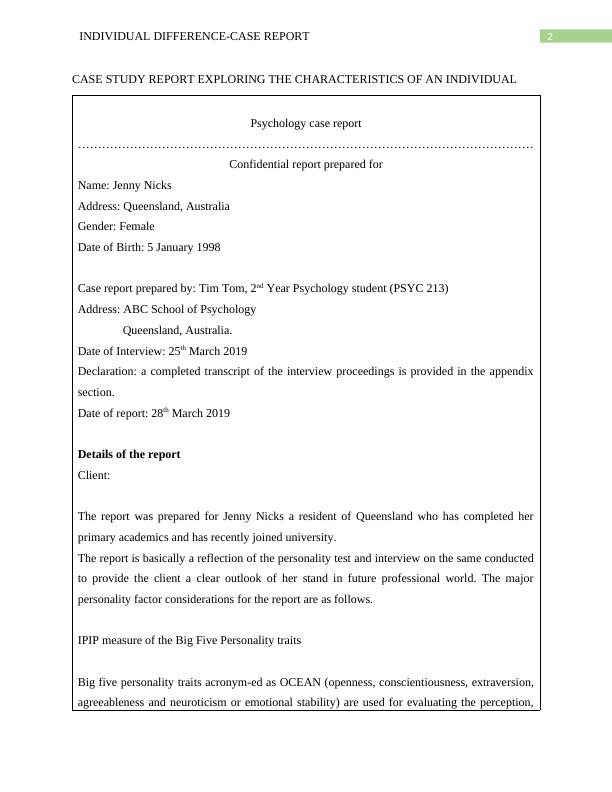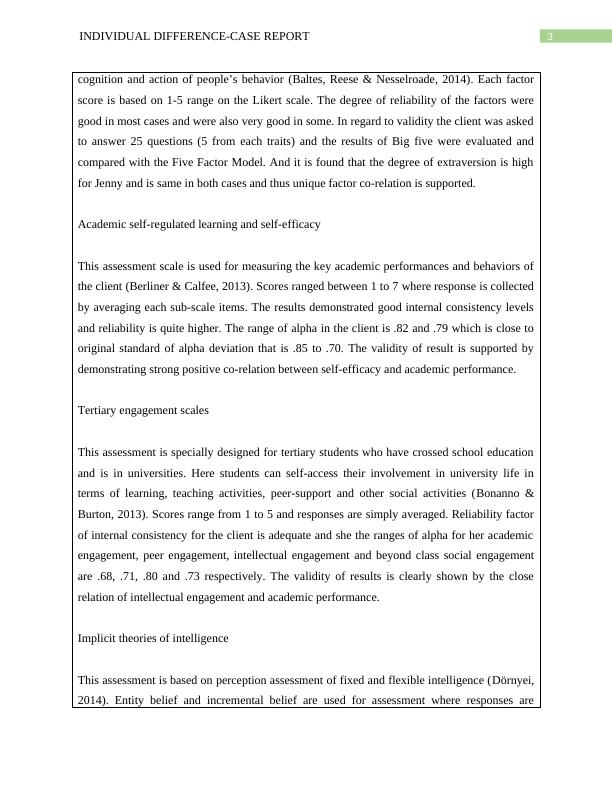Individual Difference in Personality - Case Study Report
Norms and interpretation of scores for the Individual Differences scale in PSYC213 course.
8 Pages1784 Words415 Views
Added on 2023-04-20
About This Document
This case study report explores the characteristics of an individual in terms of personality traits, academic self-regulated learning, tertiary engagement, implicit theories of intelligence, perfectionism, achievement striking, academic expectations, and academic achievement goals.
Individual Difference in Personality - Case Study Report
Norms and interpretation of scores for the Individual Differences scale in PSYC213 course.
Added on 2023-04-20
ShareRelated Documents
End of preview
Want to access all the pages? Upload your documents or become a member.
(solved) SPSS Research Report
|20
|3482
|200
Psychological Flourishing: Definition, Measurement, and Factors
|4
|871
|30
Influence of Exposure to Facebook on Personality, Self-Esteem and Social Perception in Working Environment
|9
|4263
|226
Case Study and Lab Reports
|21
|3501
|189
Self-Assessment, Reflection, and Evaluation: Interpretation of Results of The Big 5 Personality Test
|5
|1387
|317
Psychometric Evaluation of Global Emotional Intelligence Test (GEIT)
|36
|10493
|186



